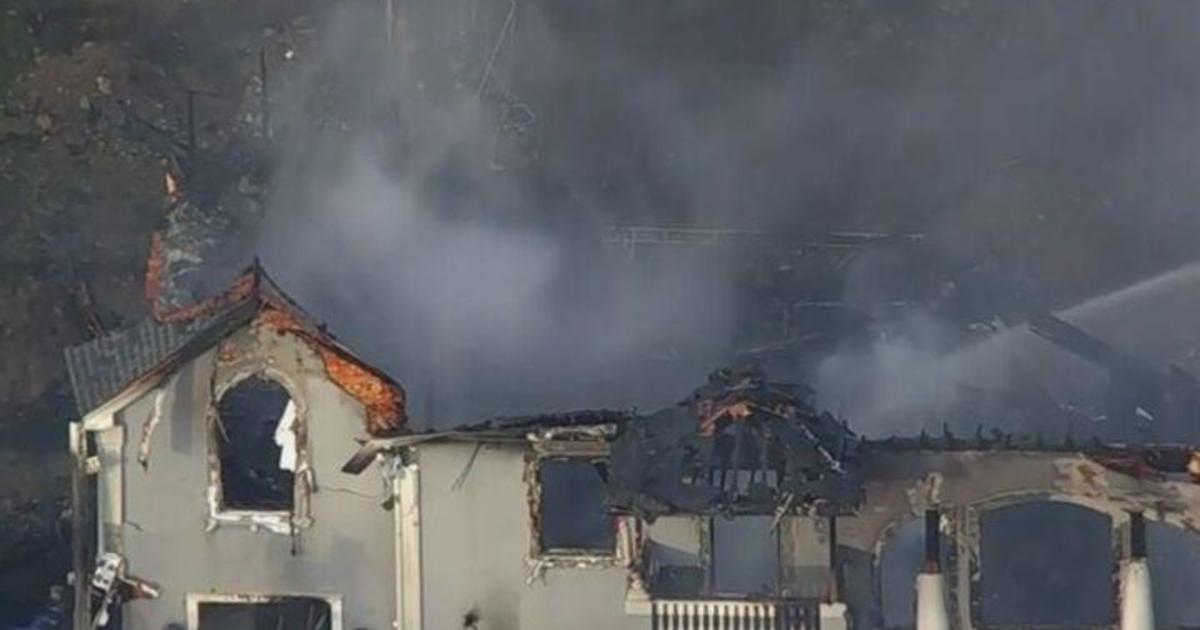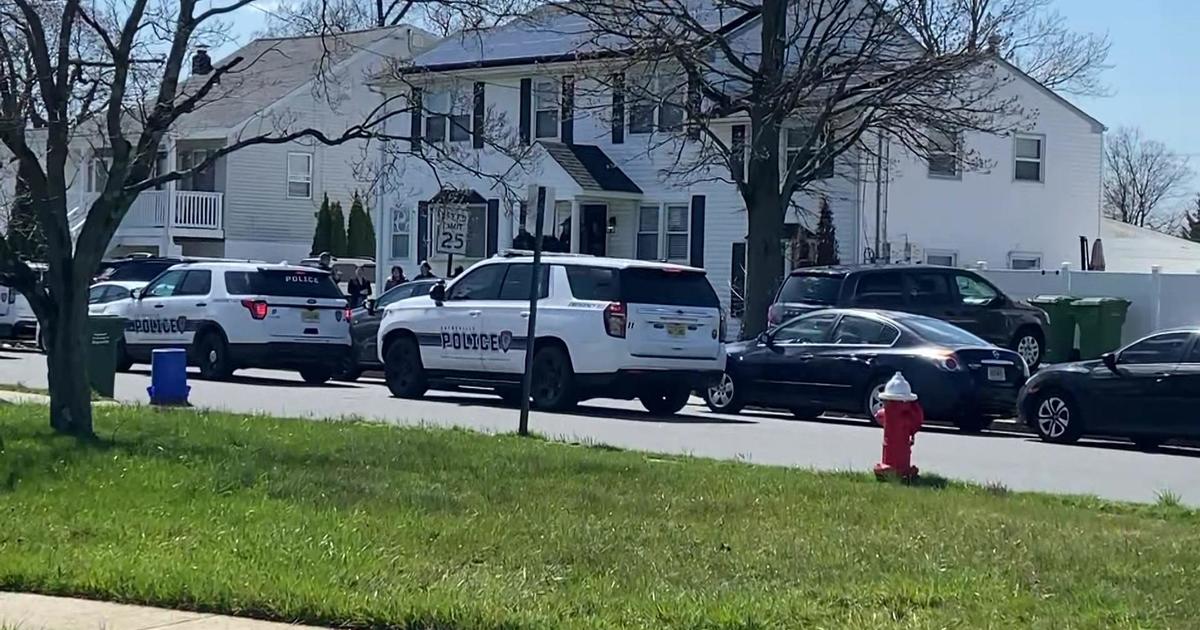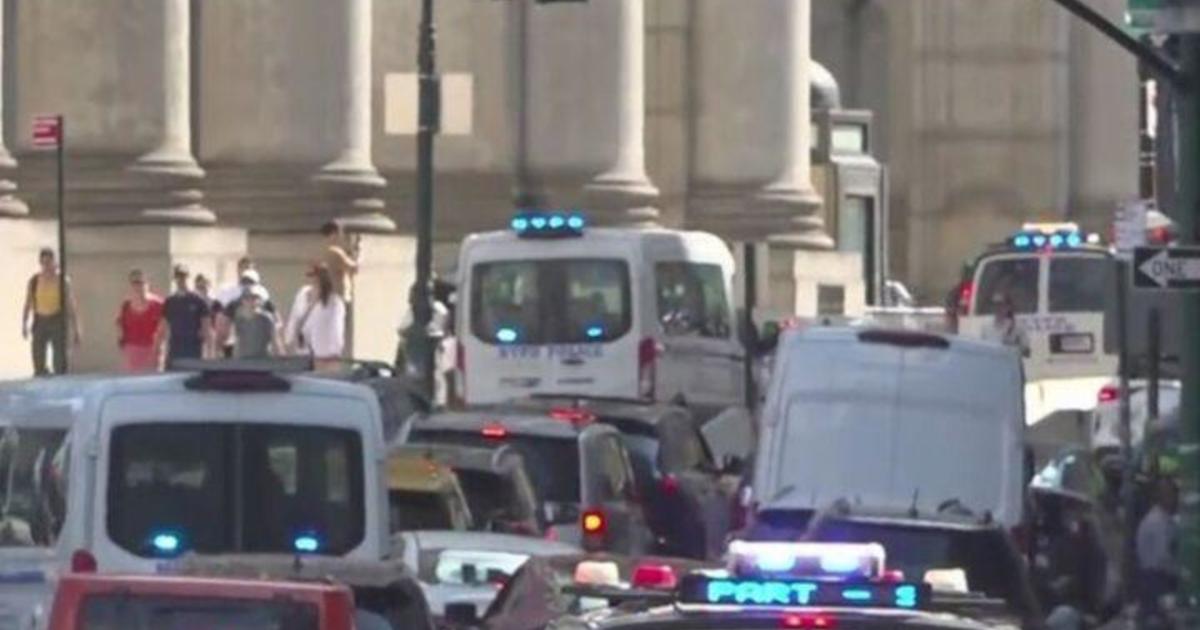Hawaiian Officials Apologize For Mistakenly Sending Missile Alert
HONOLULU (CBSNewYork/AP) — A false alarm that warned of a ballistic missile headed for Hawaii sent the islands into a panic Saturday.
The emergency alert, which was sent to cellphones statewide just before 8:10 a.m., said: "BALLISTIC MISSILE THREAT INBOUND TO HAWAII. SEEK IMMEDIATE SHELTER. THIS IS NOT A DRILL."
In a conciliatory news conference later in the day, Hawaii officials apologized for the mistake and vowed to ensure it will never happen again.
Hawaii Emergency Management Agency Administrator Vern Miyagi said the error happened when someone hit the wrong button.
"We made a mistake," said Miyagi.
The Hawaii Emergency Management Agency tweeted there was no threat about 10 minutes after the initial alert, but that didn't reach people who aren't on the social media platform. A revised alert informing of the "false alarm" didn't reach cellphones until 38 minutes later, according to the time stamp on images people shared on social media.
The incident prompted defense agencies including the Pentagon and the U.S. Pacific Command to issue the same statement, that they had "detected no ballistic missile threat to Hawaii."
The White House said President Donald Trump, at his private club in Florida, was briefed on the false alert. White House spokeswoman Lindsay Walters said it "was purely a state exercise."
House Speaker Scott Saiki said the system Hawaii residents have been told to rely on failed miserably. He also took emergency management officials to task for taking 30 minutes to issue a correction, prolonging panic.
"Clearly, government agencies are not prepared and lack the capacity to deal with emergency situations," he said in a statement.
Hawaii Gov. David Ige apologized for the "pain and confusion" caused by the alert.
"What happened today was totally unacceptable," he said. "We are doing everything that we can immediately to ensure that it never happens again."
For nearly 40 minutes, it seemed like the world was about to end in Hawaii, an island paradise already jittery over the threat of nuclear-tipped missiles from North Korea. The alert caused a tizzy on the islands and across social media.
Queens resident Chung Chow told CBS2's Lisa Rozner he received frantic calls from relatives in Honolulu.
"Everyone in the group texts were saying, 'Is this true? Where do I go? Where's the shelter?' he said.
His sister, Audrey, was in the middle of soccer practice with her kids.
"The coaches were gathering the kids and getting the kids into the bathroom, because that's the only shelter there," she said.
Brooklyn native Marianne Selwa was on a hike when she got the alert.
"I called my husband and I basically knew that I was telling him that 'I love you' for the last time," she told Rozner.
"My thoughts went back to 9/11, even New York City. I was seven at the time, so remembering that and thinking, 'not again,'" she added.
Hasbrouck Heights, New Jersey native Laura May took her family inside.
"Made sure the garage and doors and windows – everything was closed," she said.
Hawaiins now living in New York were also worried.
"I tried calling my family and my friends, and nothing would go through, all circuits were busy," said Antoni Akagi, of Astoria. "So it was a little nerve-wracking for a while."
Kailua resident Robyn Levanthal's daughter was signing the national anthem at a festival.
"People just started darting around, trying to get into bathrooms. I was with my two little girls who are 8 and 10," she said. "Kids were crying, and nobody really knew what to do."
It wasn't until 38 minutes later that a second alert was sent out, clarifying the threat was not real. But the fear lasted beyond those 38 minutes for many.
"Some of my friends did say it was the longest 30 minutes," Akagi said. "They had to sit not knowing."
Chow, who grew up in Hawaii, says he was never trained to seek shelter growing up.
"People are just starting to have thoughts about what would they do if something like this would ever happen again," he said.
"Besides instilling all the fear and everything that you've done, it's kind of hard to kind of take that back," he added.
Congresswoman Tulsi Gabbard took to Twitter to calm Hawaiians' nerves.
"HAWAII - THIS IS A FALSE ALARM. THERE IS NO INCOMING MISSILE TO HAWAII," she tweeted.
"What happened today is totally inexcusable," U.S. Senator Brian Schatz (D-HI) tweeted. "The whole state was terrified. There needs to be tough and quick accountability and a fixed process."
On the H-3, a major highway north of Honolulu, vehicles sat empty after drivers left them to run to a nearby tunnel after the alert showed up, the Honolulu Star-Advertiser reported. Workers at a golf club huddled in a kitchen fearing the worst.
Professional golfer Colt Knost, staying at Waikiki Beach during a PGA Tour event, said "everyone was panicking" in the lobby of his hotel.
"Everyone was running around like, 'What do we do?'" he said.
Richard Ing, a Honolulu attorney, was doing a construction project at home when his wife told him about the alert. His wife and children prepared to evacuate while he tried to figure out what was happening.
Cherese Carlson, in Honolulu for a class and away from her children, said she called to make sure they were inside after getting the alert.
"I thought, 'Oh my god, this is it. Something bad's about to happen and I could die,'" she said.
At the PGA Tour's Sony Open on Oahu, Waialae Country Club was largely empty and players were still a few hours from arriving when the alert showed up. Workers streamed into the clubhouse trying to seek cover in the locker room, which was filled with the players' golf bags, but instead went into the kitchen.
Several players took to Twitter. Justin Thomas, the PGA Tour player of the year, tweeted, "To all that just received the warning along with me this morning ... apparently it was a 'mistake'?? hell of a mistake!! Haha glad to know we'll all be safe."
In Honolulu, hair salon owner Jaime Malapit texted his clients that he was cancelling their appointments and was closing his shop for the day.
"I woke up and saw a missile warning and thought 'no way.' I thought 'No, this is not happening today,'" Malapit said.
Brian Naeole, who was visiting Honolulu from Molokai, said he wasn't worried since he didn't hear sirens and neither TV nor radio stations issued alerts.
"I thought it was either a hoax or a false alarm," he said.
Ing, the Honolulu lawyer, tried to find some humor in the situation.
"I thought to myself, it must be someone's last day at work or someone got extremely upset at a superior and basically did this as a practical joke,' he said. "But I think it's a very serious problem if it wasn't that, or even it was, it shows that we have problems in the system that can cause major disruption and panic and anxiety among people in Hawaii."
Federal Communications Commission Chairman Ajit Pai said on social media the panel would launch an investigation.
With the threat of missiles from North Korea in people's minds, the state reintroduced the Cold War-era warning siren tests last month that drew international attention. But there were problems there, too.
Even though the state says nearly 93 percent of the state's 386 sirens worked properly, 12 mistakenly played an ambulance siren. At the tourist mecca of Waikiki, the sirens were barely audible, prompting officials to add more sirens there and to reposition ones already in place.
(© Copyright 2018 CBS Broadcasting Inc. All Rights Reserved. The Associated Press contributed to this report.)



